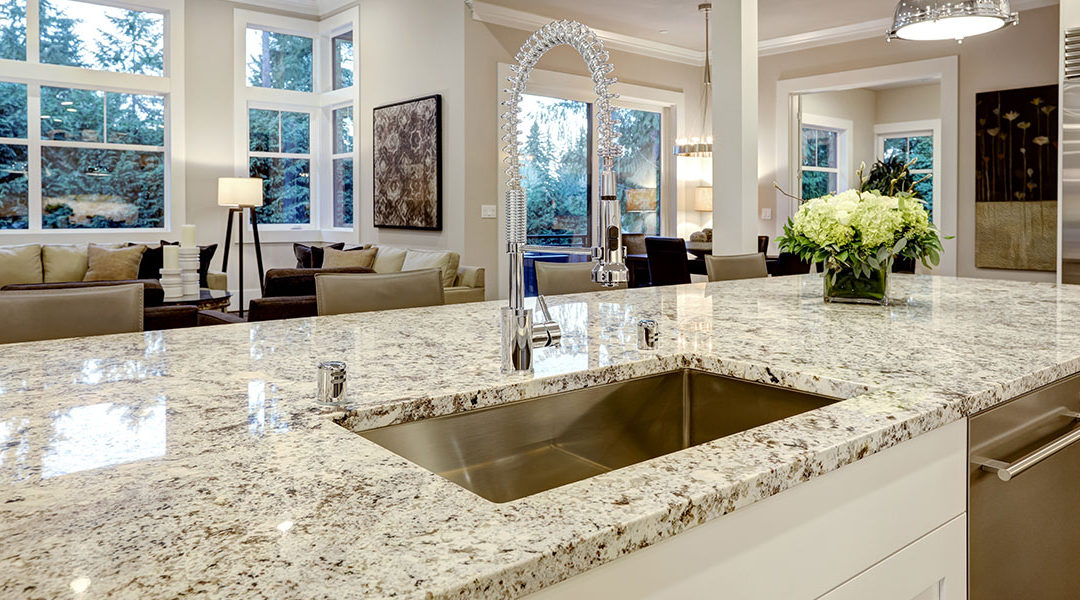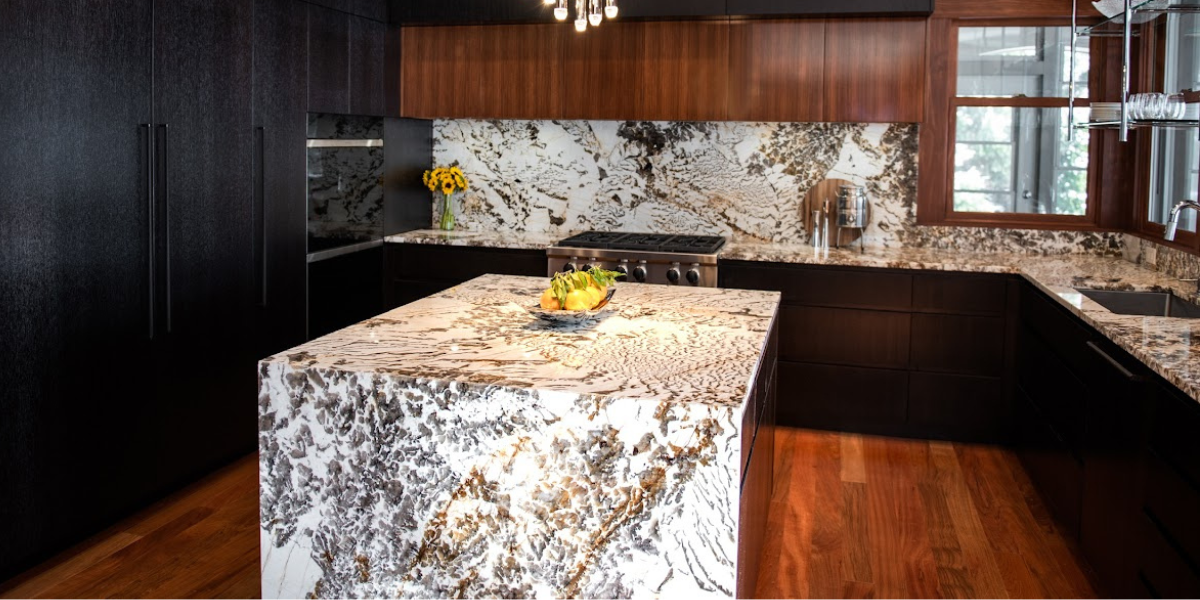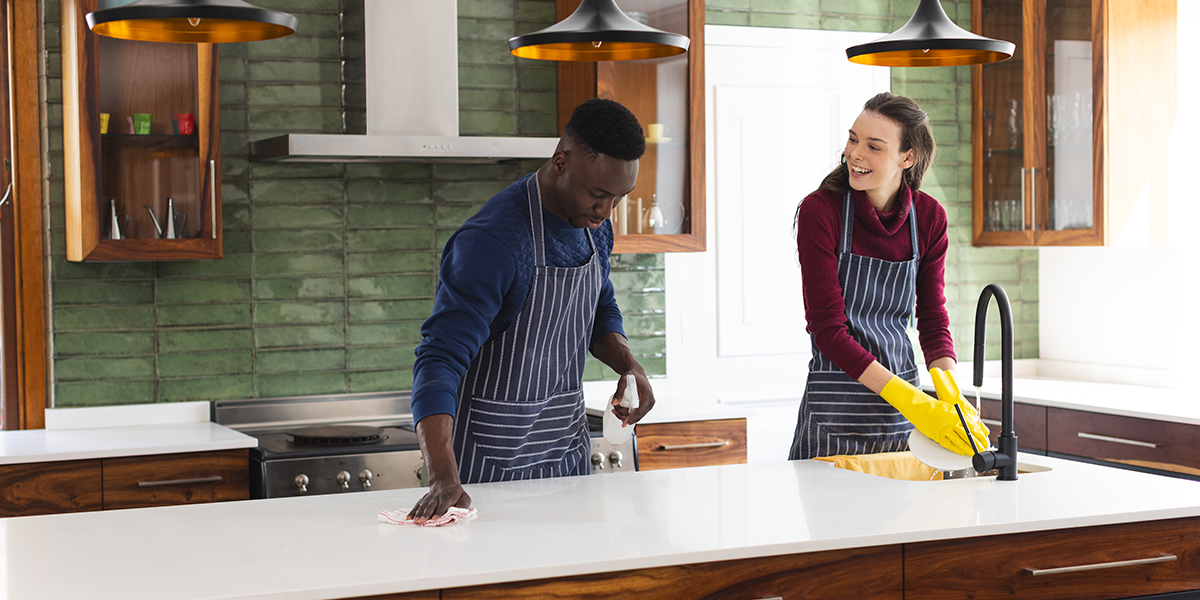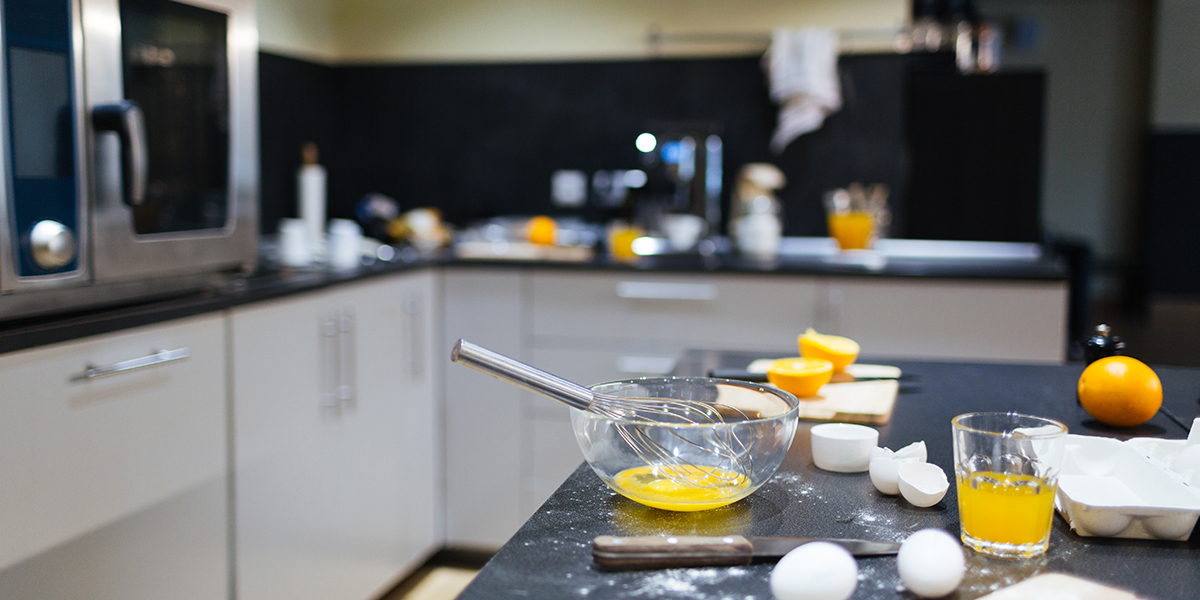When it comes to home renovations, there seems to be a never-ending list of decisions to make along the way. If you’re considering installing natural stone then choosing the material can be more overwhelming. Granite and quartzite are two of the most popular choices that are used in a variety of renovation projects. While both quartzite and granite offer many benefits, there are some differences you may consider before installation. In this blog, we will discuss those key distinctions as well as the pros and cons of each stone.
Download Our Natural Stone Care Guide — Click Here
Composition
Quartzite and granite are often compared to one another due to their hardness and durability, but these stones are not the same. Quartz is a manufactured material whereas quartzite is a metamorphic rock that has been transformed from sandstone as a result of Earth’s intense pressure and heat.
In terms of granite, this stone is formed as a result of high heat from volcanic activity. Granite contains various materials in its composition such as quartz and feldspar. Both granite and quartzite share similar properties but their traits differ in durability, porosity, and maintenance.
Appearance
Quartzite is a popular choice for homeowners looking for neutral tones. Often found in whites and light grays, quartzite is often compared to marble in terms of appearance. Quartzite can add a touch of luxury to your home while offering benefits that other stones cannot.
Like quartzite, the color variations of granite are dependent on the minerals that the granite is formed from. Colors can range anywhere from black, white, and brown to blue, red, and even green. Granite will have various crystals throughout the stone instead of veining which is common in quartzite. When it comes to appearance, granite offers more styles and variations to choose from compared to quartzite.
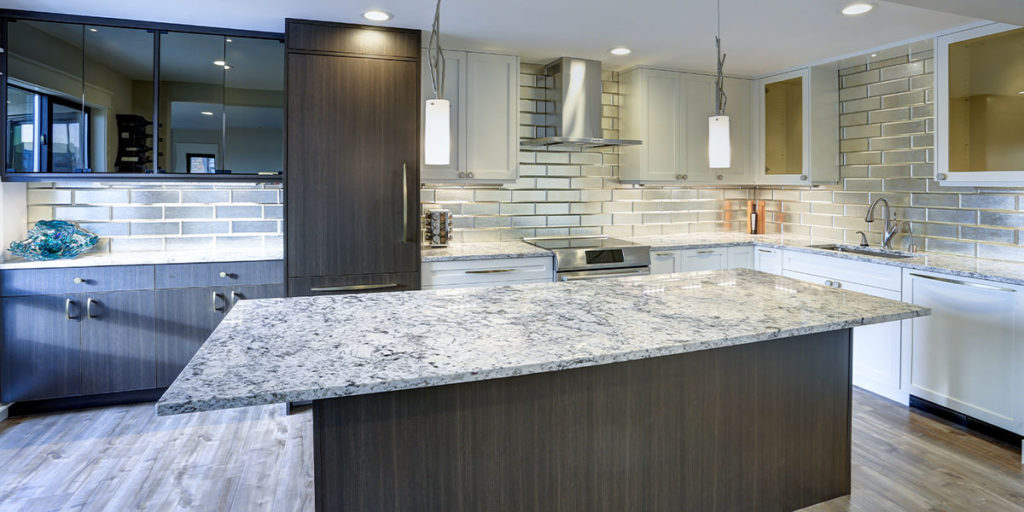
This white and gray granite countertop brings adds a touch of elegance while brightening the space.
Durability
Since both granite and quartzite are on the harder side of natural stone materials, both are exceptionally durable. One major downfall of quartzite that you will not see in granite is staining. Quartzite is highly resistant to scratching, etching, and chipping but staining can be a problem if not cared for properly. To increase your quartzite countertop‘s stain resistance, you can seal the surface as an extra layer of protection. Like any natural stone, removing stains from the countertop can be difficult, but not impossible. There are numerous products available that you can use such as poultice. Overall, quartzite is still a great choice if you’re looking for a durable and stylish countertop.
Granite is extremely durable and can take a ton of abuse. Many of our customers ask if granite can be used as a cutting surface. We still recommend placing a cutting board to chop those fresh veggies. Repetitive cutting on your granite countertop will dull and potentially damage your sharp knives. Granite can withstand a lot of damage but be careful with heavy objects as it could potentially chip or break the surface. Aside from the etching factor, granite and quartzite are evenly matched in this category.
Heat Resistance
Both quartzite and granite are heat-resistant natural stone materials. While you can place hot dishes on the surface, we recommend placing potholders on the surface as an extra source of protection. This simple step could protect your countertops for years to come.
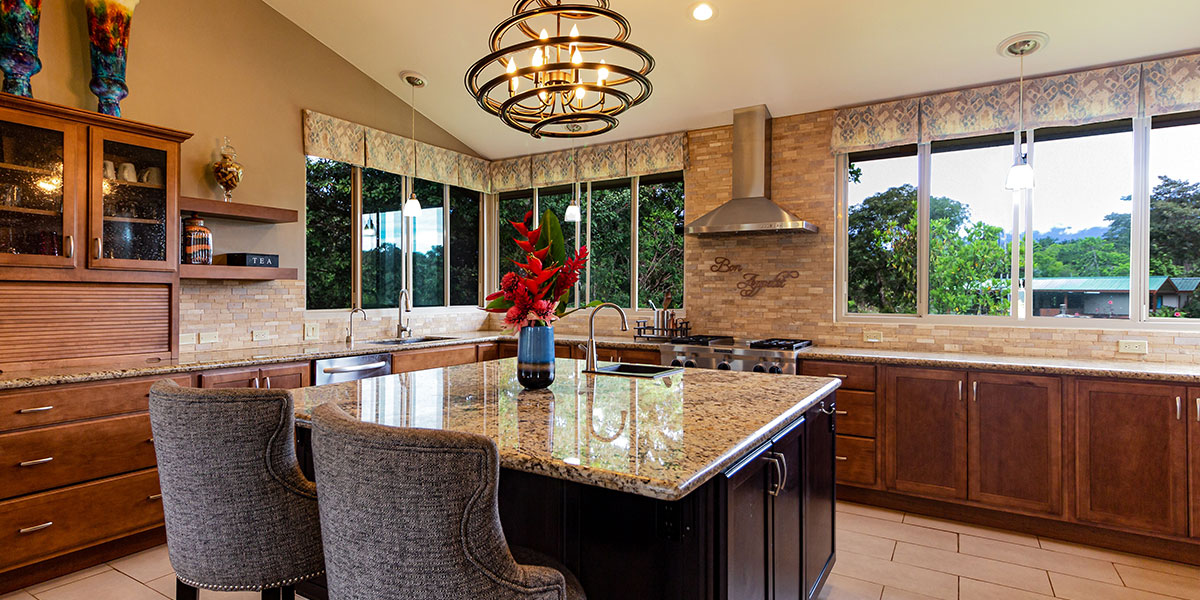
Due to its high durability, granite is a perfect stone for kitchen countertops and other highly traveled areas.
Moisture Resistance
When it comes to natural stones, they are all porous to one degree or another. Porosity varies from stone to stone and affects how much moisture and liquid the stone can absorb. Both quartzite and granite are moisture-resistant when properly sealed. When the stone is not sealed properly, the liquid can sink into the stone and possibly stain or damage the material. Quartzite does need to be resealed annually. Granite has a slight advantage in moisture resistance as it can last longer between sealings.
Maintenance
Both quartzite and granite are great choices if you are looking for a durable and minimal maintenance stone material. Both are quite easy to clean with just soap and water. Granite is more susceptible to damage if cleaned with harsh cleaners such as vinegar, bleach, or Windex. Sealing your quartzite or granite is key to its maintenance and will make your job caring for it much easier.
Quartzite vs. Granite – Which is Right for You?
When deciding between quartzite and granite, the choice often depends on what you’re looking for. If durability and maintenance are your top priorities, then you cannot really go wrong with either one. When it comes to choosing between quartzite and granite, it comes down to how you will use it in your home.
If you’re interested in learning more about quartzite and granite, contact us today. Our Z Stone Creations team is happy to discuss the possibility of incorporating natural stone into your home.


